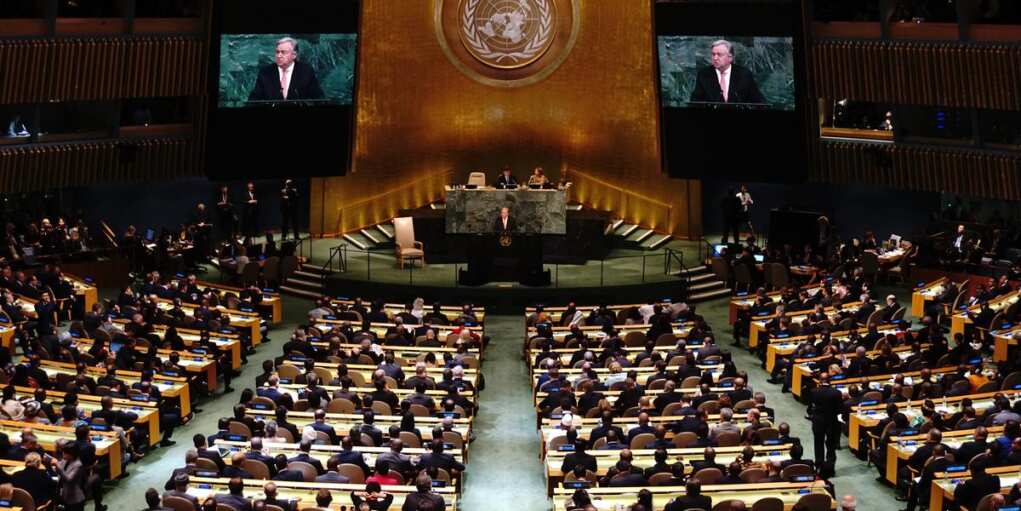Trump’s Budget Just Declared War on Globalism

A bold new draft budget from the Trump administration would dramatically reshape U.S. foreign policy by gutting funding for traditional global alliances, slashing diplomatic spending nearly in half, and eliminating support for more than 20 international organizations. The plan, still in its early stages, would see a $27 billion cut to the State Department—effectively halving its budget—and could shutter dozens of embassies and consulates around the world.
At the heart of the proposal is a clear America First philosophy: defund bloated bureaucracies like the United Nations and NATO, and redirect those dollars toward more strategic, bilateral partnerships that serve U.S. interests directly. According to a document obtained by Fox News Digital, the plan would eliminate U.S. contributions to organizations such as the United Nations, NATO, and the Organization of American States, while shifting focus to allies like India and Jordan.
“The goal here is a leaner, smarter diplomatic footprint—one that reflects the realities of a multipolar world and a fiscally responsible Washington,” said a senior administration source familiar with the budget talks. The proposal includes a $2 billion pot for “America First” priorities that could be tailored to specific partner nations or regional deals like the South Pacific Tuna Treaty.
The U.S. contributed roughly $13 billion to the UN in 2023 and another $3.5 billion to NATO. Under the draft plan, that funding would vanish entirely. While Trump’s critics are warning of global fallout, his supporters say it’s long overdue.
“No more writing blank checks to international bureaucrats who hate us,” one GOP aide told Fox. “We’re done footing the bill for globalism.”
The draft also proposes a 54% cut to global public health programs, with only malaria, HIV, and tuberculosis receiving carve-outs. All international peacekeeping funds would be eliminated. The Fulbright scholarship program would be defunded, foreign service travel and benefits scaled back, and embassies in smaller countries like Malta, the Maldives, and the Central African Republic would be closed.
Secretary of State Marco Rubio has not publicly endorsed the plan. When pressed, State Department spokesperson Tammy Bruce emphasized the proposal was far from final: “There is no final plan, final budget,” she said during a briefing. “This is the normal budget process. Everyone has ideas; Congress will do what it does.”
But Democrats are ringing alarm bells. Senator Jeanne Shaheen (D-NH), ranking member on the Foreign Relations Committee, warned that “our adversaries will fill the vacuum left by America.” She also blasted the proposed NATO cuts as reckless, especially amid ongoing conflict in Europe. “Why in the world would we cut funding for NATO at a moment when war is raging in Europe and security threats on the continent grow?”
That sentiment was echoed by Sen. Brian Schatz (D-HI), who chairs the appropriations subcommittee on State Department funding. “I want to hear from Secretary Rubio directly,” he said, calling the reports “deeply troubling.”
Meanwhile, administration officials continue dismantling what they see as redundant and inefficient federal programs. USAID, long a darling of the foreign aid establishment, has already been defunded by nearly 90%, with remaining functions being absorbed by the State Department. Public diplomacy arms like Voice of America, Radio Free Europe, and Middle East Broadcasting are also being defunded or restructured under the new approach.
The Trump administration has made no secret of its desire to rein in the federal government and reassert national sovereignty over globalist entanglements. The White House is requiring every department to submit internal restructuring plans this week, outlining how they will reduce their footprints and eliminate non-essential spending.
As for Congress, the official White House budget is expected to be delivered next month, where a Republican-led House and Senate will begin drafting appropriations bills. While Congress often deviates from presidential budget proposals, Trump’s strong influence over the party and the growing popularity of his America First doctrine make it likely that many of these cuts will survive in some form.
Whether slashing the State Department and exiting international organizations will bring new strength or new vulnerability to American diplomacy is the question that will dominate the next round of budget battles. But for now, one thing is clear: Washington’s global reset is just getting started.

